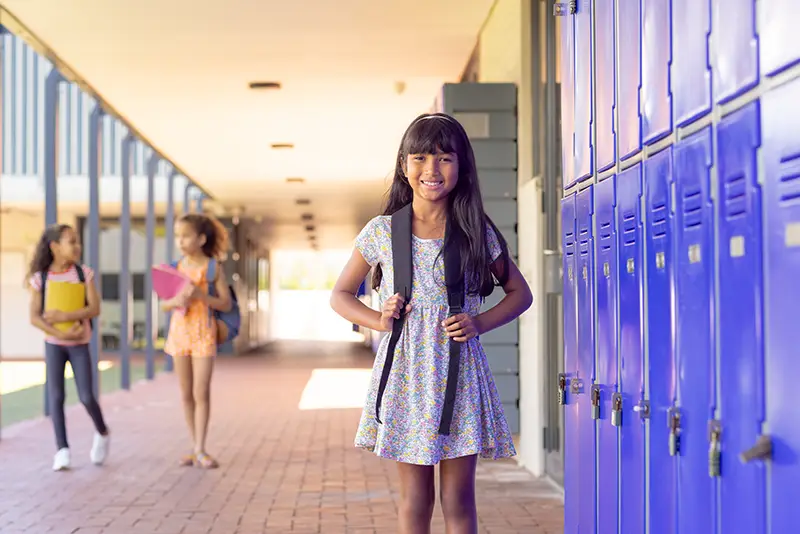
Mental Health Matters
Often unseen and untreated, child and adolescent mental health struggles can greatly impact the ability to learn and develop. Research tells us there is a strong link between students’ mental health and their academic success. The return to school can be a nerve-racking time for kids, whether it’s a child’s first day as a kindergartner, a transition to middle or high school, or just the end of a carefree summer. It’s normal for children to feel anxious about these changes. Here’s how you can help your child’s worries:
- Communicate: Encourage your child to share their feelings about going back to school. Acknowledge their worries, make them feel heard and inform them it’s perfectly normal to feel anxious about returning to school. Young children require a great deal of assistance in learning to manage a new school year.
- Create Routines: A consistent routine encourages a sense of safety in children. Developing a regular sleep schedule, eating nutritious meals, and setting aside time for homework, after school play time and relaxation activities can help children adjust to the rhythm of the school year. Often time, young children require a great deal of assistance in learning to manage a new schedule. As a parent, you can help reduce your child’s anxiety by modeling confident and calm behavior, and by creating structure in their family life, i.e., mealtime, homework and bedtime routines.
- Make Advance Preparations: If possible, attend any “back to school” orientations or meet and greet activities generally offered by schools throughout the year. Meeting school staff, locating classrooms, lockers, cafeteria facilities, and becoming familiar with the school’s layout can help students feel more confident on the first day of school. It can also be helpful to prepare for tomorrow’s school day the night before by setting out clothes, pre-packing lunches or organizing their backpacks. Preparation like this can often reduce morning jitters and help start the day in a positive manner.
- Encourage In-person Social Interactions: Facilitate after school interaction with classmates and other friends to rekindle old friendships and make new ones. Social relationships can make the transition smoother and more enjoyable.
- Teachers matter, maybe even more than you think: Teachers get to know their student’s family through the student’s eyes. They get to observe how a student behaves without their parent(s) present. Parents can obtain good information – information which they may not obtain elsewhere, including awareness of learning difficulties and peer problems as well as academic achievements and close friendships. Teachers are allies. Parents should contact their teacher and work at developing a relationship with them. Strong parent-school relationships have been shown to increase academic achievement while at the same time reduce anxiety and stress.
– Good questions to ask include: How is my child doing? Do you have any concerns about their social or academic skills? Do you think they need my help with anything?
– Dave Miner is a licensed professional counselor for Health West in Pocatello, ID. He works with elementary-aged patients through a partnership with School District 25.








